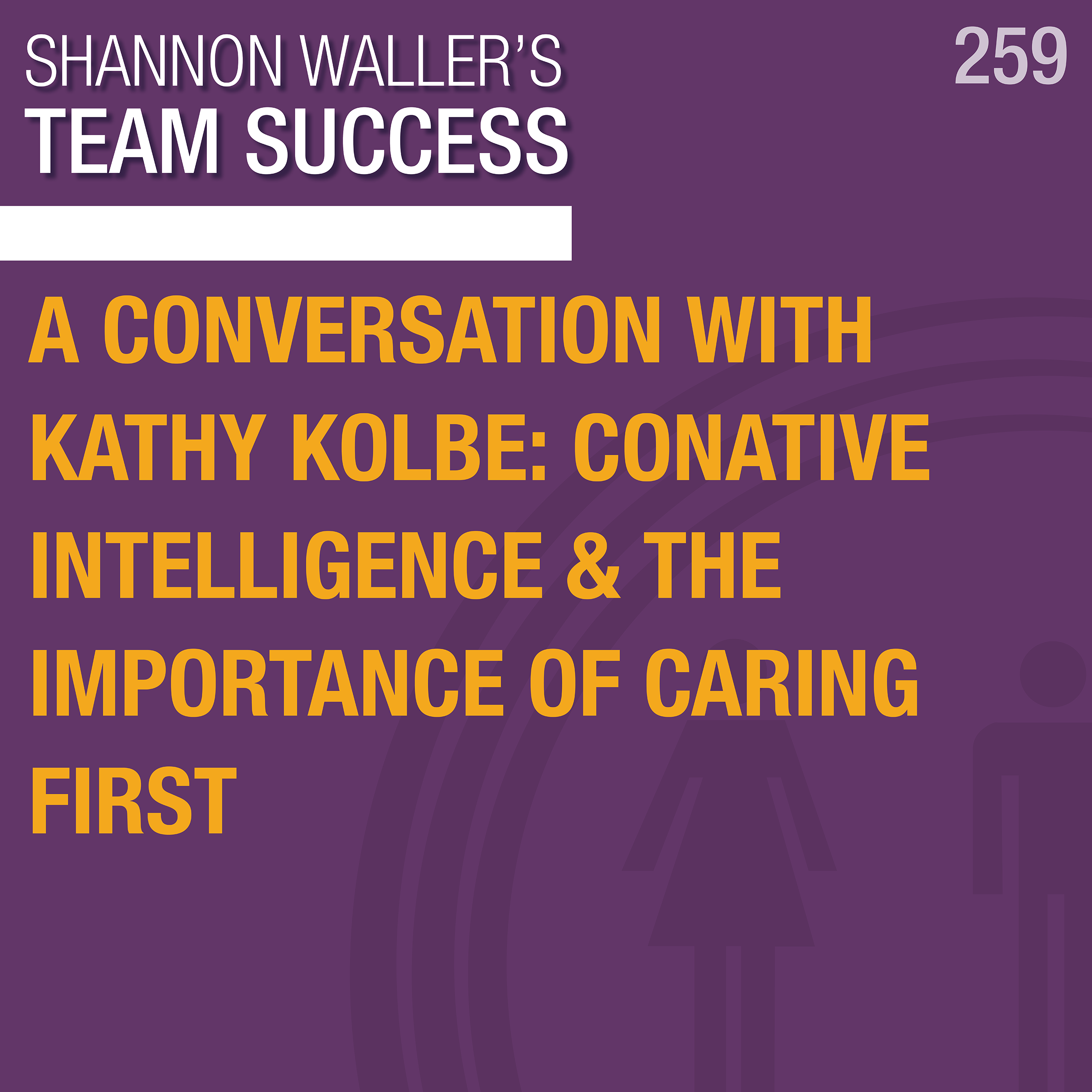Do you know what makes a good leader? The answer might surprise you! In this episode of the Team Success podcast, renowned thought leader Kathy Kolbe, founder of the Kolbe Index, joins Shannon Waller to delve into the realm of conative intelligence. The pair explore the impact of emotional leadership, the limitations of cognitive intelligence, and the power of understanding one’s Kolbe MO, along with how embracing conation can drive entrepreneurial success. With valuable insights and real-life examples (plus an inside look into Kathy’s inspiring life and business journey), this episode provides actionable strategies for any entrepreneur looking to harness conative intelligence, foster effective teamwork, and elevate their leadership approach.
Download Episode Transcript
Show Notes:
- To make more confident entrepreneurial decisions and refine your leadership approach, it’s essential that you leverage your natural conative intelligence.
- Similarly, when you understand the conative differences within your team, you can leverage individual strengths more effectively.
- If you want to foster commitment and drive success in your company, you must get emotional buy-in. When people are emotionally engaged in a project, they produce better, more creative work, and they do it faster too.
- A great way to do this is to connect individual goals and personal priorities with team objectives. This is emotional leadership.
- You can practice emotional leadership by showing genuine care and understanding for your team’s affective priorities. In other words, foster an environment where team members are aligned with their personal goals.
- Cognitive intelligence only gets you so far. If you’re constantly fighting your Kolbe MO, everything you do will feel difficult—and not very fun.
- You can empower your team’s creativity and problem-solving abilities by identifying and utilizing individual conative strengths effectively.
- The worst thing you can do is assemble of team of people with the same conative strengths. Success happens when you put different strengths together.
- A good leader should prioritize open discussions about conative differences and their impact on creativity, leadership, and teamwork within your organization.
Resources:
Unique Ability®




